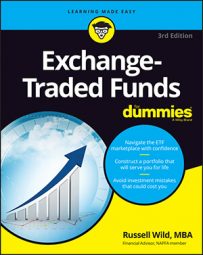Warren Buffett knows a value stock when he sees one. Do you? Different investment pros and different indexes, upon which ETFs are fashioned, may define “value” differently, but here are some of the most common criteria:
P/E ratio: As early as 1934, Benjamin Graham and David Dodd (in their book with titled Security Analysis) suggested that investors should pay heavy consideration to the ratio of a stock’s market price (P) to its earnings per share (E). Sometimes called the multiple, this venerable ratio sheds light on how much the market is willing to cough up for a company’s earning power.
The lower the ratio, the more “valuey” the stock. The higher the ratio, the more “growthy” the stock.
P/B ratio: Graham and Dodd also advised that the ratio of market price to book value (B) should be given at least “a fleeting glance.” Many of today’s investment gurus have awarded the P/B ratio the chief role in defining value versus growth. Book value refers to the guesstimated value of a corporation’s total assets, both tangible (factories, inventory, and so on) and intangible (goodwill, patents, and so on), minus any liabilities.
A ratio well below sea level is what floats a value investor’s boat.
Dividend distributions: You like dividends? Value stocks are the ones that pay them.
The cover of Forbes: Magazine covers are rarely adorned with photos of the CEOs of value companies. While growth companies receive broad exposure, value companies tend to wallow in obscurity.
Earnings growth: Growth companies’ earnings tend to impress, while you can expect value companies to have less than awe-inspiring earnings growth.
The industry sector: Growth stocks are typically found in high-flying industries, such as computers, wireless, and biotechnology. Value stocks are more often found in older-than-the-hills sectors, such as energy, banking, transportation, and toiletries.

